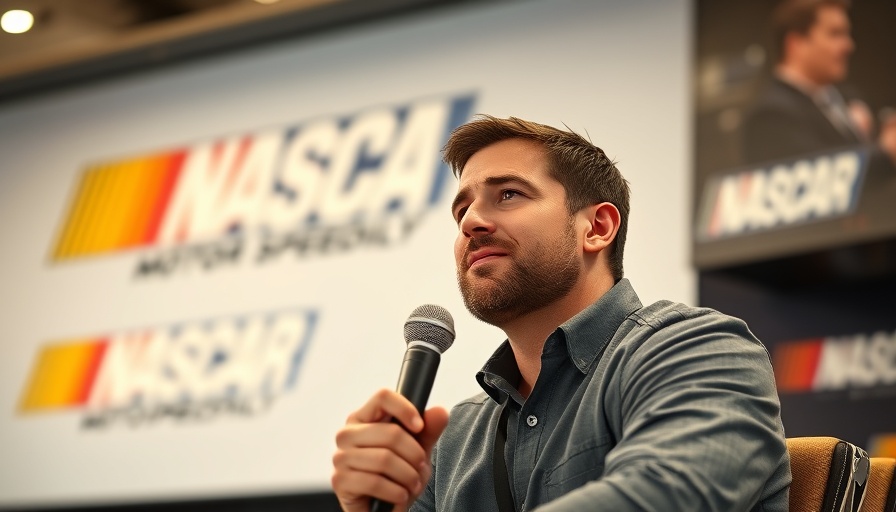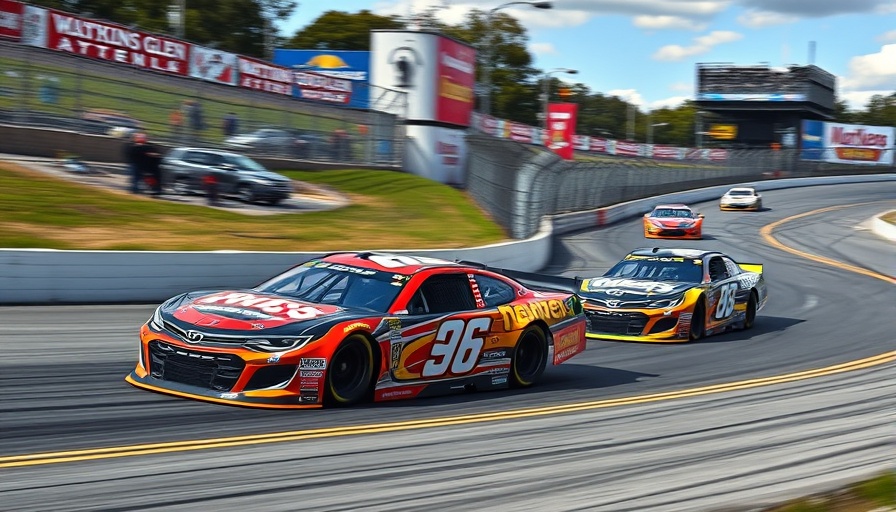
Denny Hamlin's Bold Challenge: Is NASCAR's Next-Gen Car a Major Flaw?
In a world where speed and strategy dominate the NASCAR landscape, Denny Hamlin has thrown a spotlight on what he deems a "fundamental problem" with the introduction of the next-gen cars, also known as Gen-7. The latest criticisms sparked following a lackluster race at Bristol Motor Speedway highlight a crucial conversation within the sport: Are these new vehicles truly designed for competitive racing, or do they hamper the very excitement that fans crave?
The Unveiling of the Next-Gen Cars: Promises vs. Reality
When NASCAR introduced the next-gen cars in 2022, the anticipation was palpable. Fans were eager to embrace innovations aimed at leveling the playing field—better aerodynamics, improved safety features, and more cost-effective racing strategies were all part of the plan. However, reality came crashing down as races unfolded with reduced overtaking and less driver engagement, leaving fans questioning the true value of these cars.
Hamlin's scathing remarks regarding the strategy behind these vehicles resonate with a frustrated audience. The lack of excitement during the Bristol race, where Kyle Larson's dominance overshadowed any competitive drama, has many fans wondering if NASCAR’s forward-thinking intentions have missed the mark.
What Did Hamlin Say? Key Insights from His Critique
Hamlin’s critique carries weight given his stature in the sport—he's not just another driver; he’s a seasoned competitor who intimately understands what makes a race thrilling. According to him, the cars' inability to facilitate overtaking is a critical issue; every driver's goal is to find a line that leads to victory, yet the current mechanics create a blockade.
This fundamental problem threatens more than individual races; it jeopardizes the very fabric of NASCAR entertainment. Fans tune in for the nail-biting moments when cars jockey for position, and if that thrill is absent, it raises an urgent concern to reconsider the vehicle's design before more damage to the brand is done.
Analyzing the Fan Experience: What’s at Stake
Hamlin’s insights provoke a vital discussion about the fan experience in NASCAR. Thrilling races draw larger audiences, which boosts sponsorship and revenue—a cycle essential for the sport's growth. If the current cars inhibit close competition, fans' excitement may wane, directly affecting television ratings and attendance at live events. Simply put, a dull race may lead to dwindling interest.
The voices of fans are pivotal in holding NASCAR accountable. Social media has become an amplifier for their perspectives. Sporting events where race fans feel unheard can see a downturn in passion and loyalty, which is a critical element in sustaining interest in the sport.
Future Trends: NASCAR's Path Forward
The path NASCAR takes now is more crucial than ever. Could new regulations or modifications to the existing Gen-7 car design pave the way to a more competitive future? NASCAR would do well to listen to champions like Hamlin and other drivers. Engaging with them for feedback can promote better race products, ensuring that fans leave satisfied rather than deflated from a predictable race outcome.
Additionally, NASCAR needs to explore innovative ideas such as introducing alternative racetracks or varying race formats to capture more exciting dynamics. The sport thrives on its ability to adapt—the risk is often worth the reward if it leads to a more captivating racing experience.
The Broader Cultural Impact of NASCAR
NASCAR doesn't just represent car racing; it's a slice of American culture. From tailgating at races to cheering in grandstands laced with history, it embodies a community ethos that thrives on competition and celebration. The fans and the sport intertwine, forming a fabric that reflects shared passions. If that fabric starts fraying due to uninspired racing, it’s imperative that NASCAR invests in solutions that not just rejuvenate races but also enhance the culture surrounding them.
As Hamlin and others within the sport signal for change, it’s an opportunity for NASCAR to rethink its trajectory positively. With the right adjustments, the next-gen cars could become synonymous not just with tradition but with innovation and competitive excitement.
As a fan, how do you feel about the current state of NASCAR racing? Are you excited for the potential of changes, or weary from the same old patterns? Your voice matters in shaping what lies ahead!
Let your opinion be heard—join discussions at local racing meets or engage in social media groups. Keep the passion alive for a sport that has given fans years of excitement.
 Add Row
Add Row  Add
Add 




Write A Comment